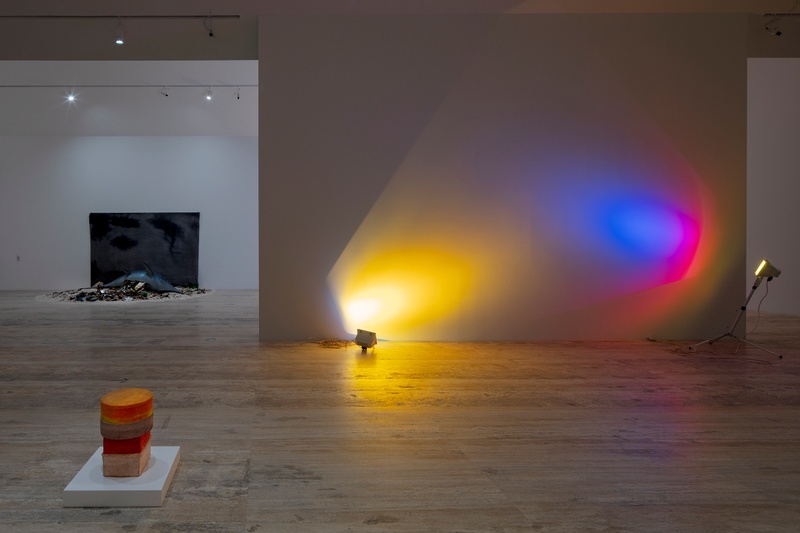Untitled, ca. 1979-1980
Untitled, ca. 1979-1980
Wood, plaster and color
193 × 44 × 19 cm
© Archiv Franz West. © Estate Franz West
193 × 44 × 19 cm
© Archiv Franz West. © Estate Franz West
In his practice, Franz West questioned the limits between art and everyday life, and between the artist, the audience, and the work. He made sculptures, installations, collages, and other works on paper from a wide variety of materials, including plaster, papier mâché and aluminum. These are rough and abstract in their construction and meant to sound and reflect the relationship between the recipient and the work on a physical, mental, and intellectual level. In the mid-1970s, he began creating his Adaptives, objects that anyone may physically interact with according to his or her own decision at any time at in any place, thereby underlining the conviction that the experience of “the world” is not universal but depends on the respective situation and the devices that a person is confronted with at a respective time and place.
Related Works






